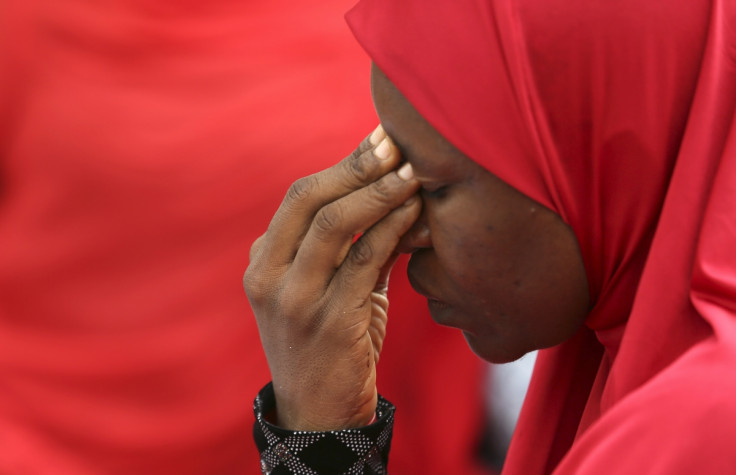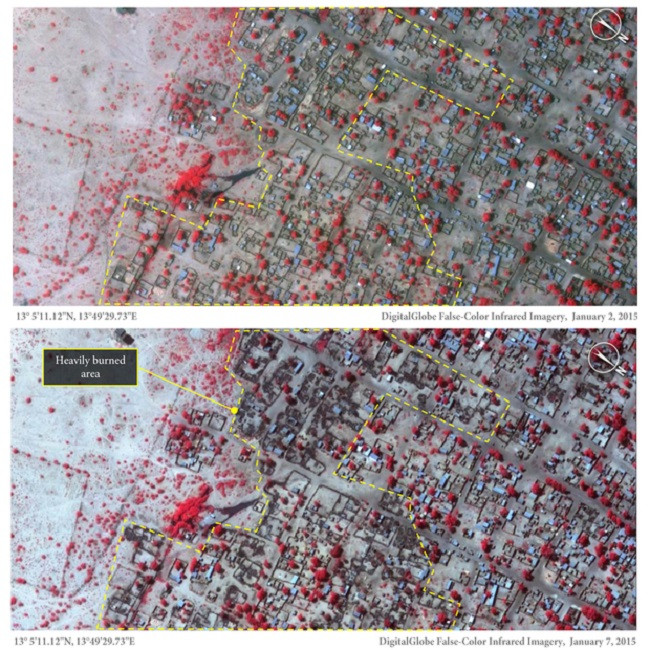Nigeria Boko Haram: UN urges world 'to condemn evil use of young girls in suicide attacks'

The international community must condemn Boko Haram's forced use of kidnapped girls in suicide attacks, the UN has said.
UN special envoy for global education, Gordon Brown, made the comments as Boko Haram has stepped up its attacks in northern and central Nigeria.
Who are Boko Haram militants?
Boko Haram, which fights against Western influence in Nigeria and aims to impose its version of sharia law in the country, declared an Islamic caliphate in Gwoza, along the Cameroon border, in August 2014.
The group has been raiding several cities in the north of the country in a bid to take control of more land.
Violence linked to Boko Haram's insurgency has resulted in an estimated 10,000 deaths between 2002 and 2013.
Three states, Adamawa, Borno and Yobe, have been under a state of emergency since May 2013, due to Boko Haram's deadly attacks.
"The whole world must unite to condemn Boko Haram's new barbaric low with their evil use of young girls as suicide bombers to carry out their murderous attacks," Brown said in a statement received by AFP.
"These attacks come as Boko Haram have outraged the world with their indiscriminate murders of innocent men, women and children in the towns of Baga and Doron Baga."
Brown referred to the attack at the beginning of January in which the group slaughtered at least 2,000 people, including women and children, in Borno state.
The mass-killing, described as "possibly the deadliest" the terrorists have committed, was carried out as the group raided 16 towns in Borno.
Boko Haram sparked worldwide outrage when it kidnapped some 220 schoolgirls from Chibok, Borno State, last April.
Shortly after the mass-abduction, reports emerged that girls were being used as suicide bombers.
Last November, a girl blew herself up in a collage in Kontagora, in Nigeria's central Niger State, killing 10.
In January, a 10-year-old girl was forced to carry out a suicide attack in Maiduguri, capital of Borno, killing 16 people.
President Jonathan visits victims of Boko Haram's attacks
Meanwhile, Nigeria's President Goodluck Jonathan visited one of the sites attacked by the insurgents in Maiduguri.
During his visit, the president assured that all the areas controlled by the group "will be soon recaptured".
However, according to the Abuja-based Nigeria Premium Times newspaper, Jonathan's visit in Maiduguri is linked to his political campaign.
Jonathan will re-run for president in the upcoming election that will be held on 14 February and, according to Premium - which claimed to have talked to "insiders in the president's campaign" - he is trying to regain the trust of people in the north of the country, where Boko Haram mainly carries out its attacks.
According to some, Boko Haram has been used as a tool by people who are not happy with Jonathan.
Norman Amidu, international analyst and senior consultant at iecoAfrica, told IBTimes UK that some believe "that there are some people behind Boko Haram and they use the group's insurgence to promote their agenda: they are unhappy with Jonathan and therefore they use terrorism to urge the president to step down so that a president from the north can be elected."

© Copyright IBTimes 2025. All rights reserved.






















